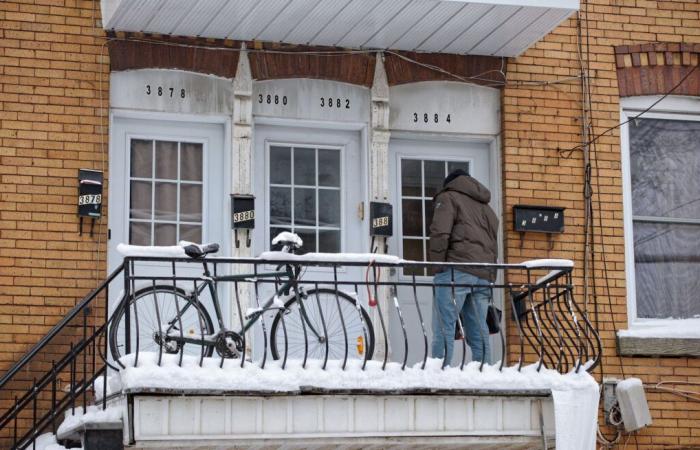According to a new Léger study on the state of the residential rental market, Quebec tenants now pay on average $1,001.30 for housing, which represents an increase of 8.1% compared to 2023 ($926.10) . It even takes almost $1,100 ($1,097.40) in Montreal and $1,041.50 in Quebec, compared to $836.80 in other regions of the province.
The study also reveals that draconian rent increases between two leases continue to be commonplace in the province. Households who changed apartments during 2024 thus experienced an average rent increase of nearly 20% (19.8%, or $200.80).
For Adam Mongrain, director of the Housing component of the organization Vivre en ville, at the origin of the study, it is the ineffectiveness of clause G which is in question, because it does not prevent owners to constantly index rents.
“Clause G is systematically neglected or ignored when signing the lease,” he summarizes in Duty.
Clause G is the section of the lease in which landlords are required to indicate the amount of rent paid over the last 12 months for a given accommodation. If this section is not completed, the tenant can bring an action for rent fixation to the Administrative Housing Tribunal.
According to the data compiled in Léger’s study, clause G is in fact rarely informed by the owner, and 81% of Quebec tenants do not know the rent paid by the previous tenant.
The importance of the Rent Register
Given the ineffectiveness of clause G, Mr. Mongrain calls for more transparency in setting rents and calls for the adoption of the Rent Register by all governmental and territorial authorities. Launched in May 2023 by Vivre en ville, this tool, which works thanks to the voluntary registration of the population, lists the rents of some 70,000 housing units.
“Since its launch in 2023, the Register has received a lot of support from across Quebec, from tenants and even landlords. The population also overwhelmingly supports the Register, with more than half of Quebec residing in one of the municipalities in favor of a public and universal register. Making the market work shouldn’t be a crapshoot,” he says.
To prove the usefulness of a rent register, Adam Mongrain cites as an example the case of a Montreal tenant who managed to obtain a rent reduction of nearly $600 per month and a reimbursement of overpaid amounts.
After a long search for an affordable apartment, this tenant, who wishes to remain anonymous, agreed to sign the lease even though the landlord had obstructed clause G at the time of signing. However, thanks to the information entered in the Rent Register for his new address, the tenant was able to confirm an unjustified increase of approximately $600 per month compared to the old rent.
With the support of the former tenant, he opened a file with the Administrative Housing Tribunal. Before the hearing, the landlord finally reached an agreement providing for a rent reduction of $600 per month (from approximately $1,500 to $900) and a reimbursement of the overpaid amounts.
Mr. Mongrain believes that any participation in the Rent Register would help people to better understand their rights, because, according to him, it is the lack of information on rents that makes unjustified increases possible.
“The only thing missing now is government support,” he concludes.
To watch on video
Canada






